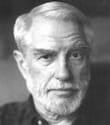Honoring Our Legacy: Remembering the Influence of Five Family Therapy Mentors
Honoring Our Legacy started in 2011 as a joint collaborative project between The Taos Institute and Reauthoring Teaching. We believe the best tribute we can give our mentors is to gather evidence that their ideas and practices have gained lives of their own even for people who never knew them. We will highlight specific contributions, in text and recordings, by five cherished family therapist mentors: Gianfranco Cecchin, Harry Goolishian, Tom Andersen, Lynn Hoffman and Michael White.
Our Princes are dying (and one queen) by Lynn Hoffman.
I could not bear to hear of Gianfranco’s death,
While trying to help some roadside travelers,
Or the death of his good friend, young Guido Boscolo.
I could not bear to hear of the death of Tom Andersen
Our beloved patron from the Arctic snows.
And I could not bear to hear of the death of Michael White,
Another angel here in human guise.Harry Goolishian, Steve de Shazer, Insoo Berg, had warned us, going first.
And there are some in the wings, waiting, that I have heard about,
Too many, too soon, too dear,
A mid-life massacre,
But living on in our immense regret.
I pay my grave respects to all of these,
And am reminded of John Webster’s “Dutchess of Malfi,”
In amending the deathless phrase that closed the play:
Cover their faces
Mine eyes dazzle,
They died young.
A poem in memory of just a few who gave so much to the field of Family Therapy…
Series Description
Each of the five mini-courses takes about two hours and includes audio, video, and text. Anyone can start at any time. Sign up for individual mini-courses, or for the entire series. The “round table conversation” is a bonus for those who sign up for the entire series.
Registration always open!
- Regular: $40 USD per mini course and $200 for the entire series (6th as a bonus)
- Student or Fixed Income: $30 USD per mini course or $150 for the entire series
- Optional CE credit certificate for the entire series: $40 USD
When you purchase each mini course
- You will receive an email with the link to the correct page for beginning the course
- Each page of the minicourse has space at the bottom for comments.
- Please contact us to inquire about a group rate, a scholarship reduced fee or a live webinar.
If you have already registered, access course here:
CE Certificate
Psychologists can earn 2 APA approved Continuing Education credit for each minicourse through Alliant International University or 10 CEs for the entire series. Simply pass the quiz at the end of the course, and email your confirmation to reauthoringcollaboratory@gmail.com. We will send you the certificate of completion.
Watch our Introduction!
Lesson Descriptions

Lesson One: What is Narrative Therapy?
We begin by reviewing several excellent brief descriptions of narrative therapy, and the Why Narrative Therapy? Youtube Project. After reviewing some important distinctions between narrative practice and other approaches, we honor the legacy of Michael White (Australia) and David Epston (New Zealand), the founders of Narrative therapy. Included are some special added remembrances of Michael who died in April of 2008.
Guided by: Peggy Sax, with a focus on the works of Michael White, David Epston, Maggie Carey and Shona Russell
 Michael White
Michael White David Epston
David Epston Maggie Carey
Maggie Carey Shona Russell
Shona Russell

Lesson Two: Who are our intellectual ancestors?
We situate narrative practice as a development not only within the field of family therapy but rooted in postmodern approaches, post-structrualist philosophy, literary theory and anthropology.
Guided by: Peggy Sax, with a focus on the works of Tom Andersen, Harlene Anderson and Chris Beels
 Michel Foucault
Michel Foucault Jaques Derrida
Jaques Derrida Tom Andersen
Tom Andersen Harlene Anderson
Harlene Anderson Chris Beels
Chris Beels Rob Hall
Rob Hall

Lesson Three: Three Key Concepts
Here we briefly explore three key ideas influencing narrative therapy: the role of questions, the narrative metaphor, and intentional understandings of identity.
Guided by: Peggy Sax, with a focus on the works of Shona Russell, Maggie Carey, Rachel Hare-Mustin, Jill Freedman, Gene Combs, Chimananda Adichie, and Michael White
 Rachel Hare-Mustin
Rachel Hare-Mustin Chimamanda Adichie
Chimamanda Adichie Jill Freedman & Gene Combs
Jill Freedman & Gene Combs Michael White
Michael White

Lesson Four: Four Key Ethical Considerations
We briefly explore four key ethics guiding a narrative approach: relational ethics, the decentered-influential therapeutic posture, staying close to people as center of their own lives, and reckoning with power.
Guided by: Peggy Sax, with a focus on the works of Sheila McNamee, Michael White, Shona Russell, Maggie Carey and Rob Hall
 Sheila McNamee
Sheila McNamee Michael White
Michael White Shona Russell
Shona Russell Maggie Carey
Maggie Carey Rob Hall
Rob Hall

Lesson Five: Practices That Engage with Problems
Narrative Therapy is well known as a way of working that separates the person from the problem. We will look closely at dividing practices to engage with problems in ways that do not promote shame or blame of the families or children.
Guided by: Peggy Sax, with a focus on the works of Michael White, David Epston, Karl Tomm, Maggie Carey and Shona Russell
 Michael White
Michael White David Epston
David Epston Karl Tomm
Karl Tomm Maggie Carey
Maggie Carey Shona Russell
Shona Russell

Lesson Six: Creating Audiences, Seeking Solidarity & Building Community
Narrative practitioners often seek to incorporate audiences in efforts such as letter-writing campaigns, outsider witness practices, reflecting teamwork, Tree of Life gatherings, reclaiming community, and other community rituals.
With a focus on the works of Peggy Sax, David Epston, Lynn Hoffman, Michael White and The Collab
 David Epston
David Epston Lynn Hoffman & Michael White
Lynn Hoffman & Michael White Rosa & Martha
Rosa & Martha The Collab Salon
The Collab Salon







